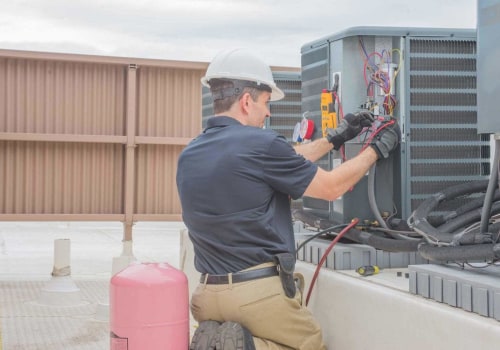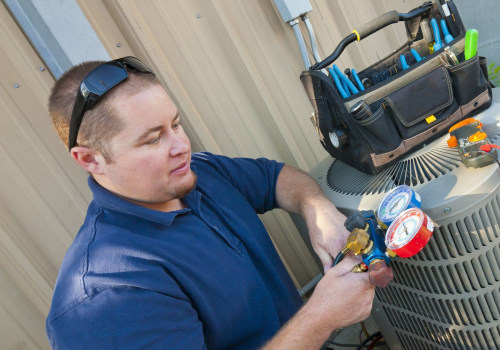Maintaining Air Quality, How Often Should You Change Your HVAC Air Filter?
You might think about this question for a bit “How often should you change your HVAC air filter?”. Therefore ensuring that the air filter is checked and replaced often should help you keep your indoor air quality healthy and HVAC system running smoothly. A precisely replaced air filter is generally 60 to 90 days, but you may replace the filter with varying frequency – depending on your particular type of air filter, your living patterns, and the overall pollution levels in your area.
Smoking or having furry friends around? You might need to replace filters more often. Changes to lookout for that call for a filter change include higher-than-usual energy bills, a considerable accumulation of dust, or an increase in allergies or other respiratory issues. These observations will enable you to achieve cleaner air and will considerably extend the life of your HVAC unit. Stick around if you’d like to know how to take care of your HVAC unit. Stick around!
Fundamental Insights
Filter type coupled with indoor air purity greatly influences how often one replaces filters.
An uptick in energy charges, an unreasonable amount of dust, or strange sounds emanating from the furnace are all signs that your filter needs to be changed.
This process necessitates closing down the HVAC system, eliminating the previous filter, and installing a novel filter that meets system requirements.
Regular servicing saves energy and extends the life of your HVAC filter.
Aspects like smoking or owning pets and living in a polluted area might necessitate more frequent replacements.
Understanding the Role of HVAC Air Filters
Now let us move on to the replacement details of the part. However, in order to have a high understanding of the functionality of HVAC air filters in your house, the filters are made of different materials, like fiberglass, polyester, or pleated paper. What they are doing is cleaning the air you breathe.
Imagine your HVAC air filter as the keeper to your abode. This gadget captures floating impurities such as dust, pet dander, pollen, and even the tiniest particles innocent to human sight. Apart from making the surroundings dirtier, these impurities impede your lung health by contaminating the air you breathe, leading to allergies, asthma, and other such respiratory ailments. Thus, ensuring that your air circulation system capitalizes on a cleaner and efficient filter is ideal for maintaining a cleaner living environment ideal for your health.
However, the more impurities it catches, the filer gets clogged-in. If the filter is clogged, it does not perform its purpose, and therefore is a danger to your health and overstraining your HVAC system. Consequently, routine filter replacements are essential. We will discuss this in detail later. At this point, know that the frequency of filter replacement depends on the filter material type and the volume of airborne pollutants in your home.
Factors Influencing Filter Change Frequency
Deciding the right time to replace your HVAC air filter varies due to factors like filter variety, indoor air cleanliness, plus lifestyle choices.
Product packaging often gives an idea of filter longevity, but this timeframe can vary. For example, pleated filters usually work well for about three months, whereas fiberglass ones need swapping after 30 days.
Air cleanliness inside your home significantly affects filter lifespan. High pollution or dust levels in your locality might necessitate more frequent filter changes. Pets or smokers in your living space can also lead to quicker filter clogging.
Your lifestyle practices can impact how quickly your filters get dirty. For instance, open windows or frequent AC use may result in faster dirt accumulation. Conversely, keeping your living space tidy and using your HVAC system less often might allow your filter to last longer.
Signs Your Air Filter Needs Changing
Wondering how you can identify when your air filter requires a change? Here are some signs to look out for:
Higher energy bills: Blocked filters cause your HVAC system to work harder, leading to increased energy consumption.
Increased dust: Noticing an increase in dust? This could indicate that your filter is not effectively removing dust particles.
Strange furnace noises: Your furnace might produce unusual sounds if the filter is clogged because it is exerting more effort.
Frequent allergy symptoms: Should you or your family members be experiencing allergies more often, this might signal a need for filter replacement.
Dirty, clogged filter: A visible accumulation of dirt and clogs on your filter is a clear indicator that replacement is necessary.
Step-by-step Guide to Changing Your Filter
Now let's outline the uncomplicated steps to swapping out your HVAC air filter, which helps keep your machinery operating at optimal levels. First, power down your heating, ventilation and air conditioning system to halt the spread of dust and particles when you eject the spent filter.
Proceed by extracting the old filter, typically situated in a conveniently reachable panel on your HVAC apparatus. Remember, prior to discarding, to note the airflow direction indicated on the filter.
On the subject of disposal, encase the used filter in plastic before consigning it to your regular trash. Doing so stops dust and allergens from re-entering your living space.
Next, we discuss tips for purchasing filters. Ensure that your purchase aligns with the specifications of your HVAC system. Consult your machine's manual or the discarded filter for size and type information. Higher quality filters, if affordable, are a good choice. They tend to endure longer and filter out more particles, providing superior air quality.
Impact of Regular Filter Changes on HVAC Efficiency
Frequent HVAC air filter swaps enhance system efficiency and lifespan. This basic maintenance action could yield energy conservation and health benefits.
Here's why:
Energy Conservation: Clean filters permit smoother air flow, diminishing the energy your system needs to regulate temperature. This could result in substantial savings on your utility bill.
Enhanced System Lifespan: Habitual filter replacements can avoid expensive damages, prolonging your system's operating life. This translates to less expenditure on major repairs or replacement.
Health Perks: Clean filters capture more dust, pollen, other pollutants, enhancing the quality of indoor air. This could mitigate allergy and respiratory issues.
Optimal Comfort: Maintaining your system well means consistent temperature and humidity levels in your home are more probable.
Eco-friendly: Lowering energy consumption not only saves you money but also contributes to reducing your carbon footprint.
Frequently Asked Questions
What Types of Air Filters Are Suitable for My HVAC System?
Suitable air filters for your HVAC system vary in filter materials and efficiency ratings. Fiberglass, pleated, or HEPA filters are common options. Ensure to verify the MERV rating to match your system's requirements.
Is It Possible to Clean and Reuse My HVAC Air Filter?
Indeed, cleaning for reuse of your HVAC air filter is feasible. Yet, this relies on the filter kind. Those that are reusable gain advantage from routine washing. Undertake thorough research on correct procedures for washing filters, ensuring their extended life and optimal performance.
How Does Outdoor Air Quality Affect My HVAC Filters Longevity?
Deteriorating outdoor air quality escalates the pollutant burden on your HVAC filter, thereby reducing its service duration. Seasonal changes have a role in this as well. For example, during spring when pollen count is high, more frequent replacements may become necessary.
What Are the Potential Risks of Not Changing My HVAC Filter Regularly?
Regular HVAC filter replacement prevents several potential risks. Neglecting this task can lead to risks such as a shortened filter lifespan. Health implications may also arise from poor air quality and allergen accumulation. Serious damage to your HVAC system could occur if maintenance is neglected. Therefore, maintaining a consistent schedule for replacing your filter proves crucial.
Are There Any Special Considerations for Changing Filters in Commercial HVAC Systems?
Indeed, special considerations exist when dealing with commercial HVAC systems. Filter lifespan, as well as system efficiency, require attention. Regular replacement of filters is vital due to their constant use, which guarantees top-tier performance and utmost energy efficiency.
Here is the nearest branch location serving the Fort Lauderdale area…
Filterbuy HVAC Solutions
2521 NE 4th Ave, Pompano Beach, FL 33064
(754) 484-4453
https://maps.app.goo.gl/WK6yuVyDS5dcqYiJ9
Here are driving directions to the nearest branch location serving Fort Lauderdale…




